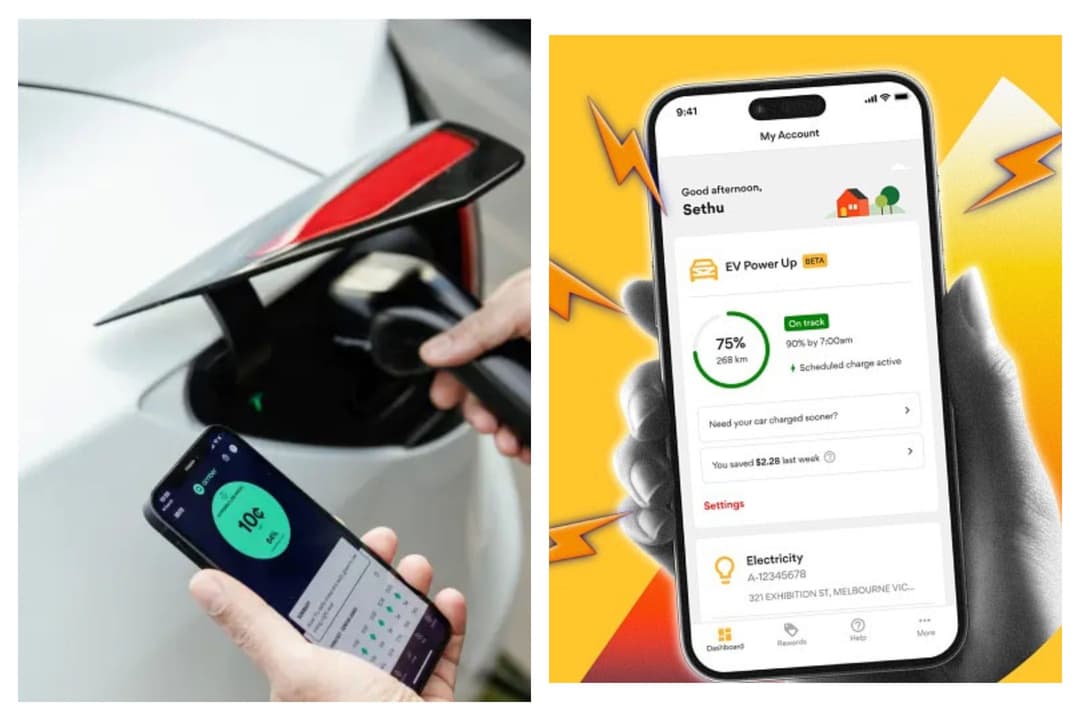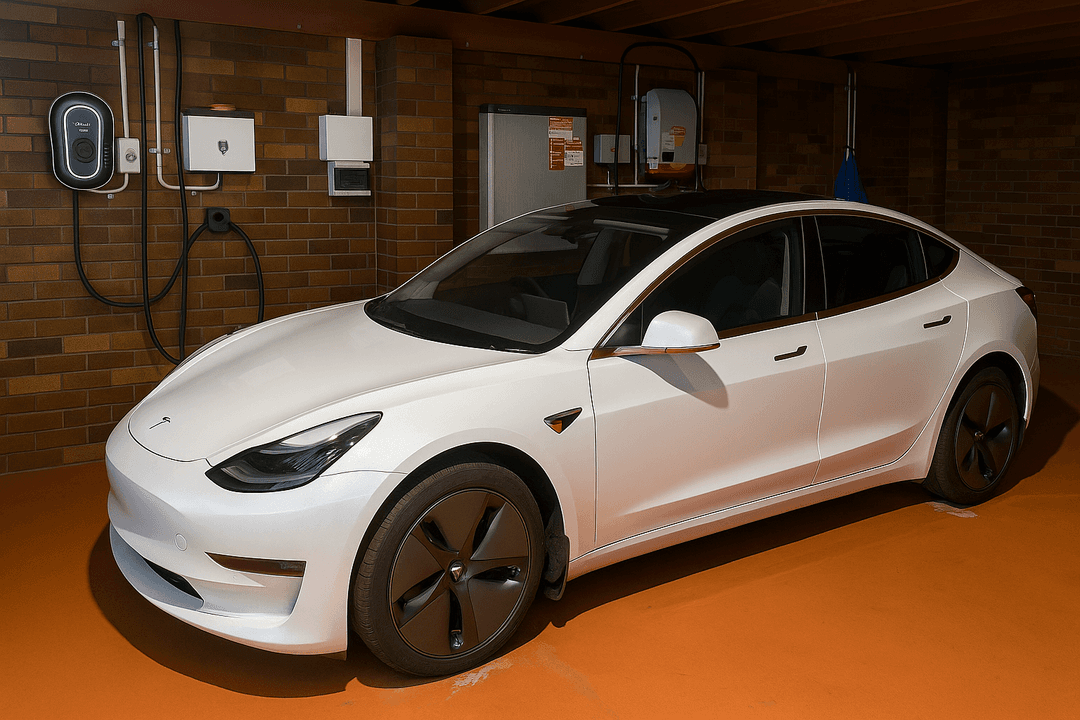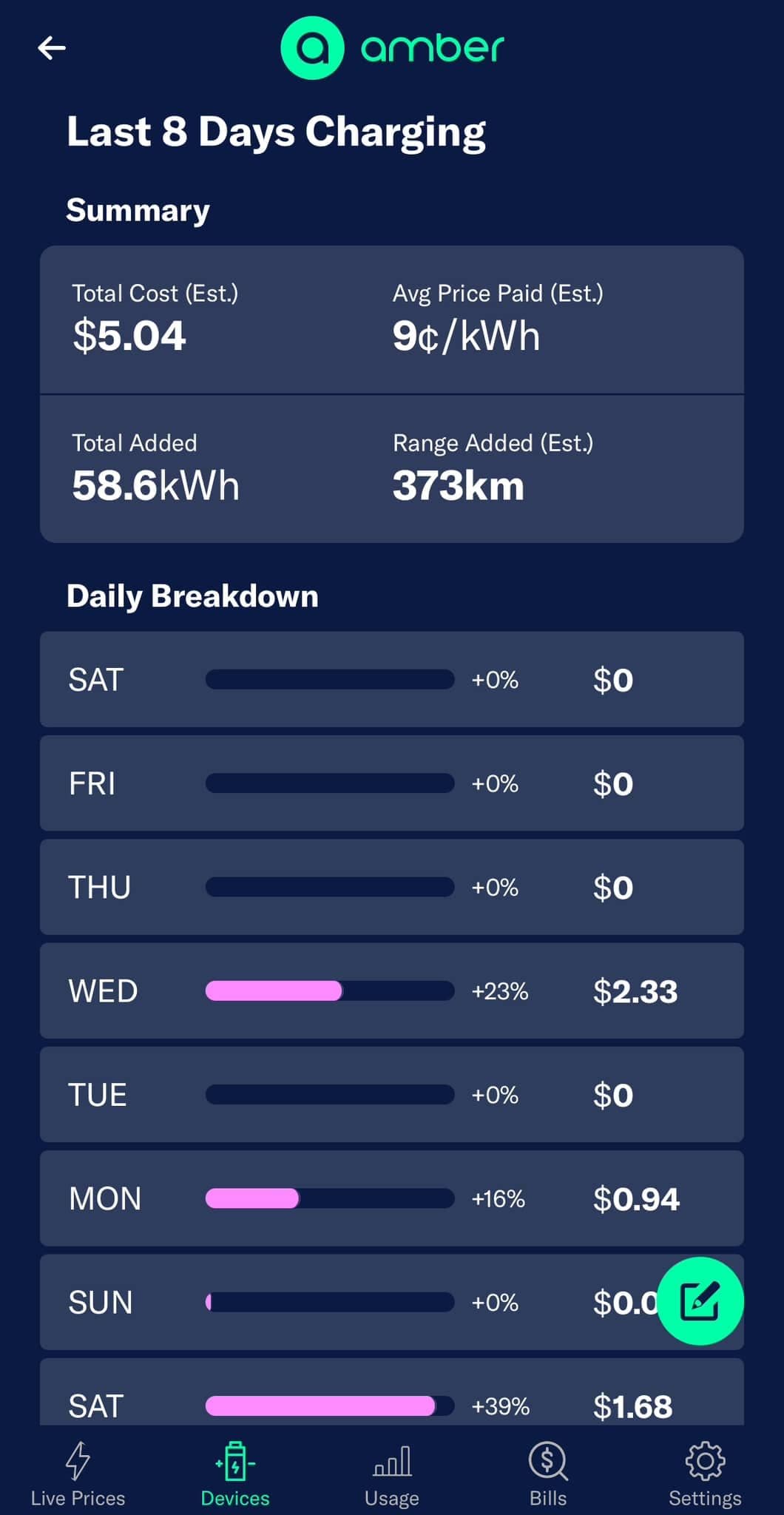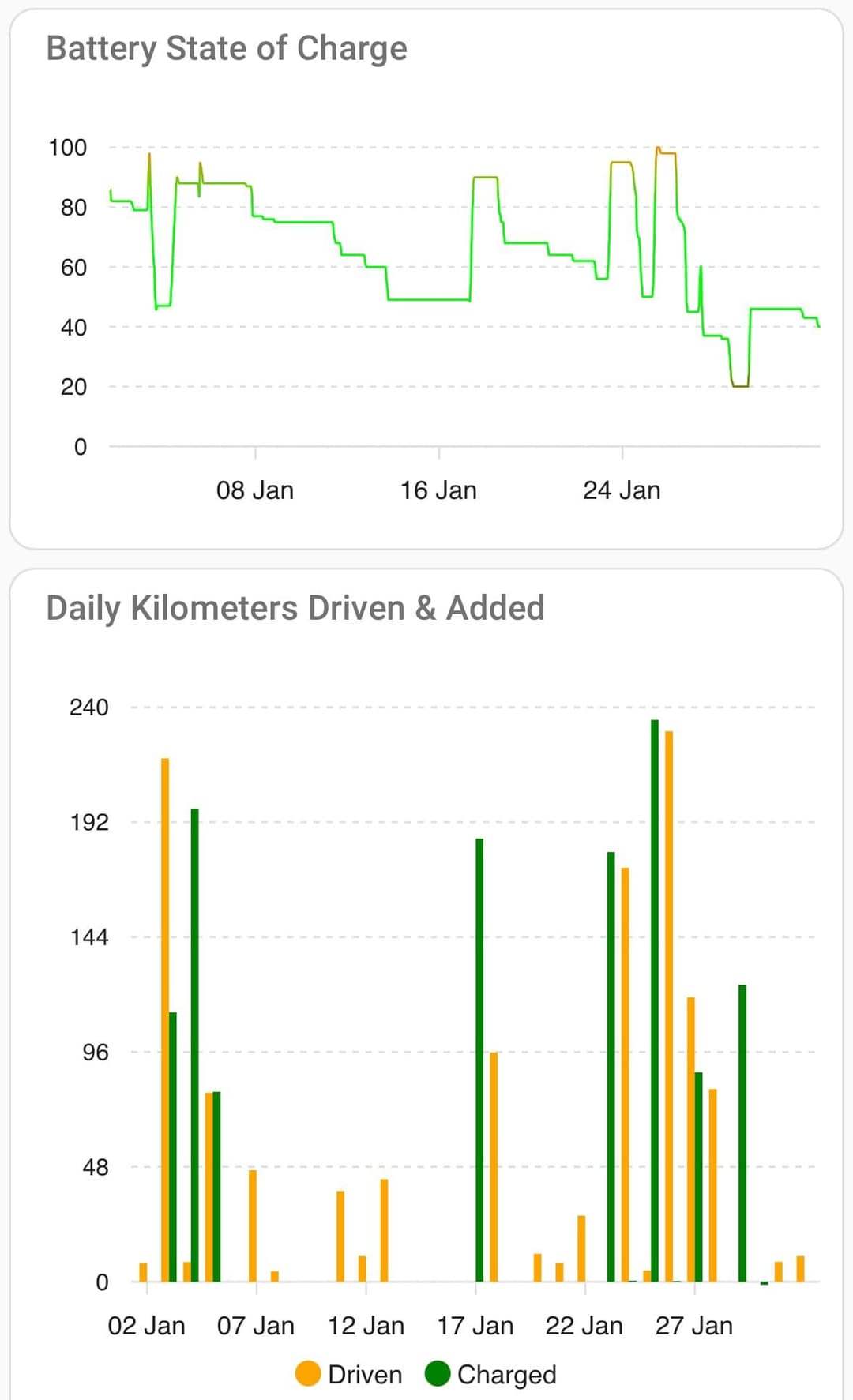
Since switching from Origin to Amber in late December, we’ve now had the chance to test both of their Smart Charging programs. While they share some similarities, the differences in control, pricing, and features are worth exploring.
January 2025 was another great month of EV charging powered mostly by the Queensland sun. Our home charger delivered 191.8kWh of energy to the car, with just 1.1kWh coming from the grid. That powered 1,325km of driving.
Origin vs Amber: The Basics
Origin’s Smart Charging
- Uses the Tesla API to start and stop charging.
- Charges are billed at a flat 8c/kWh for energy drawn from the grid.
- Limited user control. You set a deadline, and Origin manages charging to meet it.
- Simple and predictable, but less flexible.
Amber’s Smart Charging
- Also uses the car API, but with greater functionality.
- Can adjust charging speed (from 2 to 32 Amps), not just start/stop.
- You pay the wholesale electricity price, which can at times be extremely low — even negative (meaning you’re effectively paid to charge).
- Gives more control over when and how charging happens.
MORE▶️ Review: Origin EV Power Up Program

Amber Smart Charging in Practice
Customised Charging Rules
We’ve set up two main charging modes:
- Recovery Charge: If the car drops below 15% SOC and the buy price is ≤18c/kWh, it will charge.
- Opportunity Charge: When SOC is above 15%, the car charges if the buy price is ≤3c/kWh.
These thresholds are fully adjustable, giving us direct control over both price and battery state.
Predictive Solar Charging
Even without direct integration to our solar inverter and battery (which Amber doesn’t yet support), Amber can predict:
- Peak solar production times.
- Household consumption patterns.
- When it makes sense to charge from solar vs grid.
There’s even an option to prioritise exports first when feed-in prices are high, before charging the EV.
Scheduling and Overrides
- Manual scheduling is available, though we don’t use it.
- All charging modes can be switched on/off independently.
- Daily charging plans are displayed in advance, so you know what to expect.
- A manual override allows normal charging at any time.
Data and Transparency
Amber provides far richer insights compared to Origin:
- Charge Log: Tracks every command sent to the car and whether it succeeded.
- Charge History: Breaks down daily charge amounts, costs, and long-term stats.
- Advanced reporting gives a clearer picture of energy flows and savings.
This level of data and transparency is extremely valuable for power users and solar households like ours.


Real-World Benefits
Thanks to our solar system and EV, we essentially avoid paying for power, fuel, or gas year-round — even with our high mileage of ~45,000km per year. Public charging is only needed during our annual road trips.
Amber’s additional control and dynamic pricing gives us the flexibility to:
- Optimise charging costs.
- Make better use of our solar generation.
- Take advantage of wholesale energy price dips.
Final Thoughts: Which Plan is Right for You?
Both Origin and Amber offer useful smart charging solutions, but they target different types of EV owners:
- Origin Power Up is simple, predictable, and ideal for those who want low fixed rates with minimal effort.
- Amber Smart Charging is far more advanced, flexible, and rewarding - especially for solar households and EV owners willing to fine-tune their charging habits.
There are already several competitive EV offers in Australia — such as 8c/kWh from midnight to 6am, or even free power for a few hours at midday. The Origin EV Power Up program stands out because it’s flexible and less restrictive, especially for Tesla owners. For us, Amber’s detailed data, predictive controls, and wholesale pricing have made it the better fit.
About the author
Chris Cathcart
Christopher Cathcart is an EV Enthusiast bringing 7 years of hands-on experience with solar, batteries, EVs, and home energy management. He’s achieved over 6 years of energy bill credits and driven nearly 300,000 kilometres petrol-free. Passionate about sharing his knowledge, Christopher currently works for Mates in Solar undertaking system design and customer support.
Stay up to date with the latest EV news
- Get the latest news and update
- New EV model releases
- Get money savings-deal
